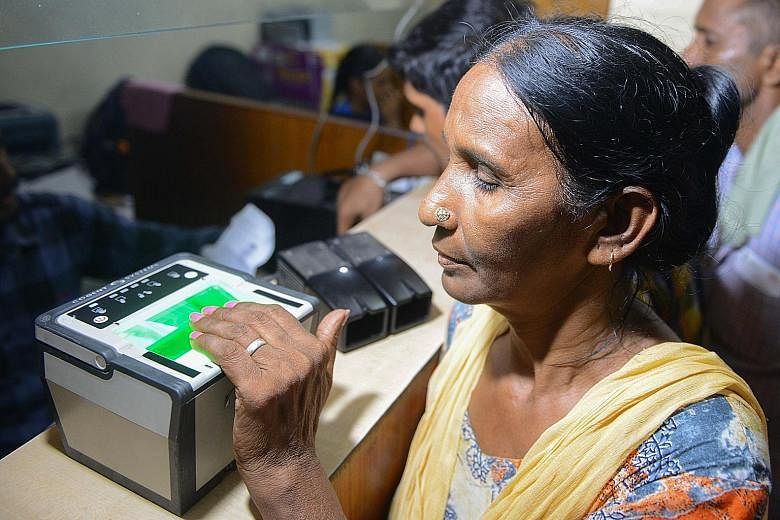NEW DELHI • India's Supreme Court yesterday upheld the validity of a massive biometric identity system, but flagged privacy concerns and curbed a government push to make it mandatory for services from opening bank accounts to securing cellphone connections.
The ruling was cheered by detractors of the system, known as Aadhaar, which has already provided biometric identities to more than a billion people, making it the world's biggest such project.
Critics have expressed fears it could spawn a surveillance state and smooth the way for companies to profile clients.
"This is a fabulous judgment," said lawyer Kapil Sibal, a member of the opposition Congress party, who had argued in court against the sweeping use of Aadhaar for identification.
He told television channel CNN-IBN: "It takes care of citizens' rights and ensures we don't have a surveillance state in place. It ensures our privacy is not intruded into and, at the same time, protects the rights of the marginalised."
A majority ruling by a panel of five judges cleared the use of Aadhaar for welfare schemes, saying it empowered the poor and marginalised.
Among other objectives, the project aims to have a unique Aadhaar number, tied to an individual's fingerprints, face and iris scan, block theft and leakages in India's US$23.6 billion-a-year (S$32.2 billion) food welfare programme.
"The entire aim behind launching this programme is the inclusion of the deserving persons who need to get such benefits," said Justice A.K. Sikri, who delivered the ruling on behalf of the majority, adding that beneficiaries would be harmed if Aadhaar were to be shelved.
The decision, split four against one, found the Aadhaar programme had merits but struck down a government effort to make its use mandatory in banking, telecommunications and school applications.
The single dissenting judge, Justice D.Y. Chandrachud, ruled the passage of the Aadhaar Act a "fraud on the Constitution" as it had been passed in a money Bill, allowing the government to bypass approval from Parliament's Upper House.
He also wrote that Aadhaar violated the right to privacy as it could lead to profiling of individuals and voters.
The media has reported several cases of Aadhaar privacy breaches, but the Unique Identification Authority of India, which manages the programme, and other supporters, say it is foolproof and secure.
"The reason why we challenged (it) was that it went beyond the public distribution system, beyond protecting the marginalised, and tried to create a surveillance state," Mr Sibal said.
REUTERS

